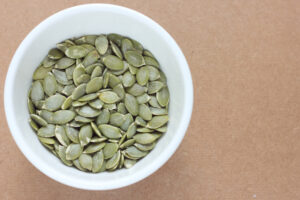Feeling out of control and unable to cope? Healthista spoke to the experts who reveal 12 strategies that WORK to help tackle stress and anxiety
The World Health Organisation has described stress as ‘the health epidemic of the 21st century.’
Even short periods of stress can cause health problems like headaches and digestive problems. If prolonged and persistent, stress can lead to mental health problems such as depression, as well as physical ones including high blood pressure, cardiovascular disease and diabetes.
It’s often difficult to see where ‘stress’ ends and ‘anxiety’ starts as they both result in the same physiological mechanisms known as the ‘stress response’.
Even short periods of stress can cause health problems
Even though the physiological response may be the same, it’s important to pinpoint which of the three is triggering this mechanism.
If you know that certain situations make you feel stressed, don’t avoid them as this can in turn lead to anxiety.
So how do you deal with stress, anxiety or both?
#1 Use visualisation techniques
‘Visualisation exercises that take you through a stressful event can help to control the physiological response advises’ says Healthspan’s wellbeing Psychologist Dr Meg Arroll.
For example, place yourself in the boardroom as if you were a teacher in front of your classroom. Look at the audience – this may itself make you feel stressed.
Now see yourself from the viewpoint of a fly on the wall. Watch how calm you look and how steady your voice is. See the audience respond positively to what you’re saying, their heads are nodding, and expressions show keen interest.
When you finish, they applaud your work. You are the best person for this task and are in control. Practice this visualisation many times before the stressful event.
#2 Turn old habits into healthy rituals
‘Many of us have just experienced incredibly high levels of stress and anxiety over a lengthy period of time,’ says Dr Meg Arroll
A recent report and study by supplement brand Healthspan, found that 21 per cent of people surveyed, believe that having rituals has helped to get them through a particularly stressful period.
Rituals are all about the meaning behind why we do something.
The survey highlighted that 52 per cent of people have adopted new rituals which have helped improve their quality of life – whether it’s to help keep you calm and collected, reduce stress, or simply help you get through everything you have to do that day without feeling overwhelmed or burnt-out.
Rituals are an important part of our wellbeing
‘But, while the pandemic saw us unable to do some of the rituals we had previously swore by, it was also an opportunity to create some new ones or view our habits and practices in a new light,’ says Dr Meg.
Rituals are an important part of our wellbeing and play an important part in developing a strong immune system. They can help to give a sense of purpose, reduce stress, stimulate productivity and increase positivity.
The simple act of making a cup of tea at the same time each day which is done with purpose and intention to have some space and ‘mind time’.
#3 Be mindful
Just a few minutes of daily mindfulness (choosing to focus your attention on something in the present to calm you and help block out negative thinking), has been shown to lower levels of stress, anxiety and even pain.
Dr Meg Arroll suggests this simple walking mindfulness exercise: ‘As you take a walk notice the sound of your feet as they hit the ground, feel the air as it swooshes past your face.
‘If you walk mindfully, you’ll feel calmer and more grounded after this exercise – and hopefully less likely to turn to food, alcohol or cigarettes’.
#4 Get your hands dirty
The fact that gardening helps you cultivate a calmer, more positive mind-set shouldn’t come as too much of a surprise (assuming, of course, that you enjoy it).
Even during the winter, getting outside has de-stressing effects and pottering around in the garden can be attributed to the fact you are consciously making time for yourself, are outdoors surrounded by nature and are fully focused and engaged in a creative and absorbing activity.
Even during the winter, getting outside has de-stressing effects
On top of this, a study has found exposure to a bug found in the soil called Mycobacterium vaccae can have a destressing effect and lift mood. There is hope that this bacterium could potentially lead to a mood-lifting drug.
#5 Reduce nutritional stress
‘Stress can cause your appetite to diminish or lead you to overeat the wrong types of food (like processed and sugary ones) which can send blood sugar levels awry,’ explains Registered Nutritionist Rob Hobson.
‘You might also drink too much coffee – which increases the stress hormone adrenaline. It can also deplete your body of key nutrients like B vitamins and magnesium’.
Good food sources of B vitamins include pork, seafood, poultry, pulses and leafy green vegetables and magnesium-rich foods include spinach, almonds, pumpkin seeds, avocadoes and bananas but if you are going through a period of prolonged stress you could benefit from supplements too.
Try Healthspan B Vitamin Complex, £5.95 and Magnesium, £9.45.
#6 Streamline your online world
Technology makes our lives easier and has many positive benefits, but being hooked up to it 24/7 can also be one of our biggest stresses, not least because most of us are almost permanently ‘on call’.
Mental health experts increasingly encourage a ‘digital detox’ for at least one day a week. But simply taking a daily short phone-free walk can help reduce stress levels too.
Other simple changes such as unsubscribing to any e-mail lists you don’t want and turning off incessant e-mail notifications should instantly leave you calmer and less distracted.
#7 Find three good things
There are some pretty grim things happening in the world but to focus too much on the bad stuff and forget what you have to be grateful for can cause you to dwell on the negatives and increase your stress.
US Psychologist Dr Martin Seligman says that writing down three positive things that happen to you daily (and why they were positive) can help reduce it.
If it all sounds like Californian tree hugging stuff, there is evidence to show both the de-stressing effects of being grateful and of this particular exercise.
#8 Use CBD oil
Cannabidiol oil is one of over 100 compounds found in the cannabis plant.
It doesn’t have an intoxicating effect (i.e. it does not get you high) like THC, and has been found to reduce pain and epileptic seizures. There is also evidence to show it reduces feeling of stress and anxiety.
has been found to reduce pain and epileptic seizures
Try Healthspan’s CBD Support Mellow, £37.95 for 60 capsules – each capsule contains 5mg of distilled and pure CBD with ingredients proven to support psychological and cognitive function, mental performance and your nervous system, including a full complex of B vitamins and vitamin C, plus essential minerals magnesium and zinc.
#9 Go herbal
If you think you’re both stressed and anxious a mixture of herbal methods should be explored.
Alison Cullen, Nutritional Practitioner and Education Manager at A. Vogel says, ‘Herbal remedies such as A.Vogel’s Passiflora Complex Spray (RRP £10.99), can help support the nervous system.
‘Passiflora works by boosting the levels of gamma-aminobutyric acid (GABA) in the brain.
‘This compound lowers stressful brain activity, which may help with relaxation and aid sleep. It can be taken either short or long-term and can be taken alongside other medication, except tranquillising or sedating medications’.
#10 Pay it back
Helping others is a great way to reduce stress levels.
Consider volunteering at a local charity branch, such as Help the Homeless, which will allow you to meet new people, make a difference to your local community and subconsciously encourage you to be more positive all at once.
Alternatively, offer to spend free time walking dogs at a local animal shelter.
‘Recent studies have found that those who spend time with dogs have lower blood pressure, cholesterol, and stress levels than those who don’t,’ says psychotherapist Sally Brown.
#11 Climb boulders or go all Strictly
Exercise has long been shown to reduce stress. It increases levels of the chemical norepinephrine which helps to balance the brain’s response to stress and helps to balance stress hormones like adrenaline and cortisol.
All exercise will help but increasingly research is focusing on exercise which involves problem solving, concentration and co-ordination like bouldering (indoor or outdoor rock climbing) or learning new dance moves.
It increases levels of the chemical norepinephrine which helps to balance the brain’s response to stress
The thinking behind the particular de-stressing benefits of these types of exercise is that by completely losing yourself in the activity and having to really focus on what you are doing you can’t ruminate on stressful thoughts.
#12 Finally, breathe…
A number of studies have shown that essential oils act upon both the brain and the nervous system.
When using concentrated essential oils that are breathed in through a diffuser, it’s easy for the olfactory system to be stimulated by them.
The benefits of essential oils are many: clinical studies have connected the use of certain essential oils to helping with mental focus, alleviating stress, reducing anxiety, easing menstrual pain, and calming the nerves.
The Tisserand Total De-Stress Aroma Spa Diffuser £44.00, creates an oasis of tranquillity with a comforting blend of Geranium, Orange and Nutmeg essential oils to help calm down the mind and help relax and unwind.
More Healthista Content:
Collagen powder: why celebrities love it and how it can help you look younger
Love Island star Dr Alex George reveals how we can deal with and prevent ‘hangxiety’
7 osteopath recommended morning stretches to set you up for the day
Monday blues? Life Coach reveals 7 ways to turn negatives into positives
Like this article? Sign up to our newsletter to get more articles like this delivered straight to your inbox.


























































